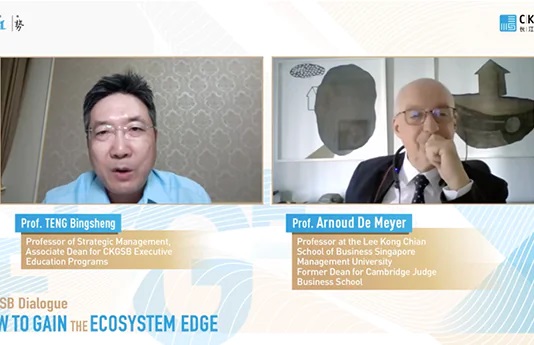Can managers cope with a new generation?
For most of human history, integrating a new generation into society has been pretty straightforward—the youngsters were shown what needed to be done, they did it as well as they could (or faced serious consequences if they didn’t), and over time, earned a place for themselves in society.
But things are different now. Executives all over the world have reported that they have difficulty not only managing this new generation but even understanding them. These young employees, their managers say, are responding differently from prior generations to everything, from assignments to incentives.
In this article, we’ll look at what managers find different—and often difficult—about the generation born between 1980 and 2000; why these young workers have developed this way; and the best way for the enterprise to respond.
Managers find that their Millennial workers have many fine qualities. In a number of studies, they have said they find them social and collaborative. They adapt to change better too—an important quality in a business world subject more and more to constant reinvention. They also have no trouble dealing with ethnically diverse colleagues. Other aspects of their collective character, however, are proving more challenging.
Perhaps the most important difference is that Millennials seem to care more about belonging to an organization they can respect. Where older generations thought more about the security of simply having a job, members of this generation want to work for an enterprise they feel serves a useful purpose.
They want their own work to make a difference, too—preferably right away. They like to be consulted, and want to be heard: Chip Espinoza, author of Managing the Millennials: Discover the Core Competencies for Managing Today’s Workforce and Orange County, Cal., HR consultant, says managers often complain that the Millennials are very critical of business processes—and quick to offer ideas of ways to improve them.
That might sound annoyingly confident, but other studies have shown they’re not all that sure of themselves. Relatively few have entrepreneurial aspirations, for instance. The majority (65%) still want a full-time job, and only 31% would like to work on a freelance basis, according to a recent Deloitte survey of nearly 8000 Millennials in 30 countries.
Overall, this generation prefers clearly marked paths. In the absence of clear expectations and information, Millennials have a tendency to retreat, and decide by not deciding, according to Espinoza. “Ambiguity is their kryptonite,” he says.
Partly for this reason, many Millennials want more regular, ongoing contact with their supervisor than their predecessors have, according to several recent studies. In a recent survey of 1000 executives by Korn Ferry, the executive search firm, for example, 77% of executives believed Millennials have a greater need for feedback than other generations. But drill sergeants need not apply: Millennials want a boss who is looking out for their career development, who takes time to talk and listen to them.
However, although their expectations of the organization are higher than previous generations, don’t get the idea that they will necessarily give much more. Many managers have noted that they guard their work-life balance more jealously than their older colleagues. Korn Ferry also discovered that 62% of executives report that their Millennial employees less willing to work longer hours or weekends than older colleagues.
Nor can they be bribed into submission. Surveys have found that money seems to be much less of a motivator for Millennials than it was for past generations. “They like praise more than they like money,” says Dr. Mary Donohue, founder of Donohue Learning, a Toronto business communication training firm.
They’re quicker to leave too if things are not going their way, experts agree. They have plenty of other interests. “It’s just a different sense, I think, of what work is and what role it should play in your life,” says Gayle Allard, professor of Managerial Economics at IE Business School in Madrid, who has studied Millennials in the workplace.
As Allard’s work suggest, the Millennial character is not just a North American phenomenon. After Espinoza published his first book on the Millennials in 2010, he was surprised to find that most of the requests he got for consulting engagements were from companies outside the US.
The Millennials are “more alike around the world than any generation before them,” says Espinoza. “There are subtle differences, you know. But for the most part the way they are perceived in the workplace is very similar.” Google The Moscow Times and the Chicago Sun Times, he says, and you’ll find managers expressing the same concerns.
Nor does the health of the economy seem to make a difference. Even in Spain, where unemployment among 18- to 24-year-olds currently tops 39%, Millennials are still pickier about which jobs they take than might be expected. “It’s a terrible labor market—it’s really, really difficult for young people—but even so, they’re looking for something meaningful,” Allard explains.
Work is one interest Millennials pursue, but far from the only one. Rather than seeing life as a set of steadily increasing and perhaps inevitable responsibilities, from car to house to family, they see a variety of options. “They’re not waiting to the end of their life to have experiences,” says Espinoza.
Popular culture is beginning to reflect their new priorities. Consider Tim Ferriss, the author of The Four-Hour Work Week, a man the New York Times described as a “cross between Jack Welch and a Buddhist monk,” who advocates radical “lifestyle design” by taking such extreme steps as moving to a radically cheaper country; Mari Kondo, the Japanese minimalist, who has built a whole empire around teaching people to be tidy; the podcasters Joshua Fields Millburn and Ryan Nicodemus, The Minimalists, who describe consumerism as a kind of prison; and Andy Puddicombe, the British Buddhist behind Headspace.com, the 6+ million-subscriber meditation website and app.
Why did the Millennials turn out this way? The short answer, experts say, is that it’s how they were raised.
In the US, the generation’s social concerns may be a side effect of the volunteer hours many high school students donate in the mad scramble to plump their college admissions CV. Espinoza, citing a study that found that 75% of people who volunteer regularly began their service as adolescents, says it makes sense to him that after finding they liked being volunteers they would want to stay involved as adults.
The North American Millennial varietal, at least, is also the first generation to grow up with both parents working, according to Donohue. This meant that from a very early age, their time was always structured. They didn’t go out to play; they went on play dates. Many grew up with time rather than money as the biggest constraint in their lives.
Millennials also have a different relationship with authority, in part because of that structured childhood. “Millennials, because of the way they grew up, have perceived every authority figure to be supportive of them, helping them get where they want to go into the next level. And for many of them it’s culture shock when they hit their career life that their authority figures don’t present themselves as being for them,” Espinoza says.
“They were pushed the whole time, but their parents rewarded them with praise,” says Donohue. “They gave them clear direction. They didn’t ever just get thrown out of the house and told they’re on their own.”
In school too, teachers and administrators were also looking out for them. “They’re used to being taken care of their whole entire lives, and then suddenly we throw them into a workplace that says, ‘We don’t value you,’ when they’ve been valued their whole entire lives. Why would they work hard?” she asks.
School trained them to work in teams too, from kindergarten on. “You are forced to not just compete, but you’re forced to…work with each other and support each other, because if you don’t, you fail,” explains Donohue.
The fallout from the 2008 financial crisis made a profound impression on western Millennials, and not just for the economic precariousness it exposed, according to Donohue. “In 2008, we changed the narrative of North America,” said Donohue. “We dramatically changed the narrative of North America. What we said was—presidents lied, prime ministers lied, bankers lied. Provosts lied at universities. University presidents lied. City counselors lied, and no one went to jail.”
The moral the Millennials drew: “‘If you’re rich and you’re powerful, and no matter what you do, you know what? If you’re powerful enough, nothing’s going to go wrong.’” Just pay a fee, you will avoid jail,” she says. “It’s like Monopoly.” Watching this rigged game “taught them not to trust,” Donohue says.
Millennials trust each other, evaluating potential employers through sites such as Glassdoor or even potential restaurants through Yelp, but they do not have similar faith in the boss. “ They’re creating trust, but among each other, not within their corporations.
Even now, the Deloitte 2017 survey, for example, found that Millennials in the developed world are more pessimistic about the future than their emerging market colleagues.
At the same time, Donohue notes, the fact that Millennials are all digital natives has created a different kind of barrier between the generations in terms of their communications preferences, as primarily verbal Boomers (1945-1960) try and fail to communicate with visual Generation Xers (1961-1980) and Millennials, who look at a document and ask, what’s in it for me, what’s in it for my group, and when’s the due date?
So how do you manage Millennials better?
Teach them to make decisions. “Two skills you have to work with them a lot on is being comfortable with ambiguity and being comfortable with making decisions,” Espinoza says.
Get out your decoder ring. Managers can avoid many problems if they keep in mind that recent generations have grown up with very different communication styles. Boomers are auditory; Gen Xers, more visual. “Then we have Millennials, who have been online since the fifth grade, and they’ve been forced to think in terms of groups, which is a very kinetic, or action-based activity,” Donohue explains.
But Espinoza argues that you shouldn’t feel pressured to change—just make sure you’re communicating well. “If you’re not good face to face don’t have face to face. If you’re you’re not good on the phone, don’t use the phone. If you’re not going on social media, don’t use it. Whatever your strength in communication or relationship building is, that’s what you want to use,” he says.
Play fair. “If you invest in your people, you’re going to make money. If you treat your people like dirt and only put them on contracts, you’re going to fail. It doesn’t matter what your margins are, your P&L in terms of human resources is going to cost you too much money,” says Donohue. “Your cost to hire is going to be high, because as we go back to what I talked about, one Millennial is going to tell another Millennial, who’s going to tell another Millennial, ‘Don’t work for this company, they screw you.’”
Look after them. Donohue believes that a company with a paternal streak could do well with this generation. “They crave an opportunity to work fulltime and to have benefits and to be cared for, because that’s how they were brought up,” she says.
In the end, of course, whether Millennials are managed well, this too shall pass. One of these days, it will be the Millennials’ turn to glare over their bifocals at a strange new crew—Generation Z. Growing up in even tougher times, Espinoza says that the Zs seem to be shaping up to be kind of like the Millennials, only more so. “They’re a little more pragmatic, a little more pessimistic, and a little more frugal,” he says.




















